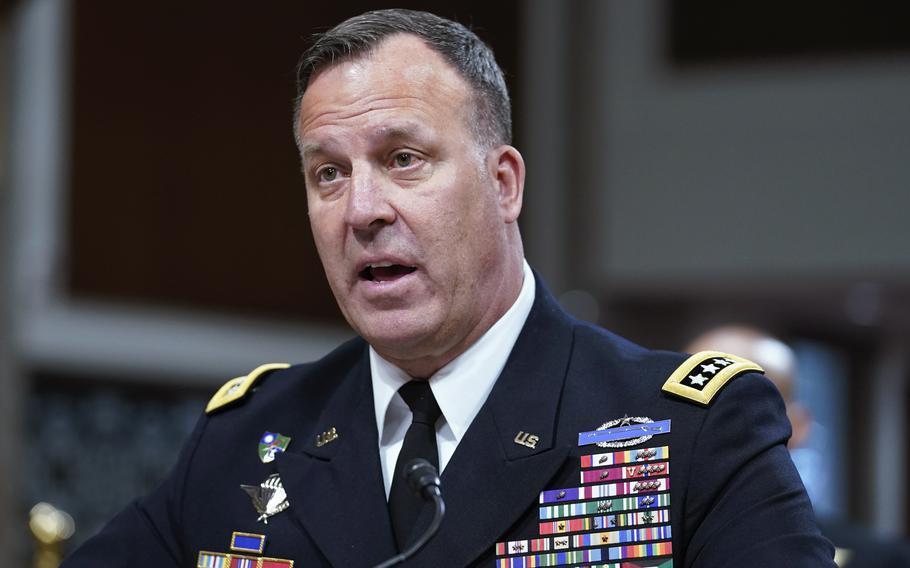
ISIS In Afghanistan Capable Of Overseas Attacks
The Islamic State militants in Afghanistan will have the potential to attack American or Western interests outside the country in less than six months, the top commander for US forces in the Middle East said on Thursday.
Army General Michael Kurilla, who leads US Central Command, told the US Senate Armed Services Committee that Islamic State’s Khorasan Province, commonly known as ISIS-K, is rapidly growing in Afghanistan, with the potential to launch“overseas operations” in Europe and Asia.
The terrorist group will not be able to attack the US homeland in the near future, however, hundreds of Americans outside the country will face immediate threats from the insurgent group, according to Michael Kurilla.
Following the withdrawal of American forces from Afghanistan, civil and military American officials said that the United States has the ability to target terrorist groups in Afghanistan from a distance.
The killing of Al-Qaeda leader, Ayman al-Zawahiri, in a counter-terrorism operation by the CIA in the Afghan capital city of Kabul in August 2021, justifies the US’s ability to target terrorist groups in Afghanistan and beyond.
Kurilla acknowledged that the quality of US intelligence has degraded since the pullout from Afghanistan, and conducting counterterrorism operations has become difficult but not impossible. He said his command is working to close the intelligence gap using sophisticated technologies that can stay in the air for days and weeks to enhance gathering accurate intelligence on terror groups.
Since the return of the Taliban to power in August 2021, ISIS-K is responsible for killing and injuring at least 700 people in Afghanistan, according to Human Rights Watch. The terrorist group carried out four high-profile attacks from December-January 2022, hitting Afghanistan’s foreign ministry, the military section of Kabul’s airport, the Pakistani embassy, and a hotel housing Chinese guests, according to the nonprofit Counter Extremism Project.
Security remains a significant challenge for Afghanistan’s de facto authorities among other critical issues, such as poverty, unemployment, and economic challenges.
Source: menafn





